FRIDAY FLYER-Issue 161

Headmaster's Welcome
We hope that you have enjoyed your week and thank you for taking the time to find out what has been happening at Epsom this week…
Our school was abuzz with activity as you can see HERE. From Boarding House trips to the Water Park and Climbing Wall to victorious football matches where our boys’ and girls’ teams emerged triumphant, it was a week filled with fun and learning both in and beyond the classroom.
Our busy week started with an enlightening presentation by our Head of Languages, Ms. Anna Macleod as part of our College assembly. September 26th marked the European Day of Languages, an occasion dedicated to promoting language learning throughout Europe.
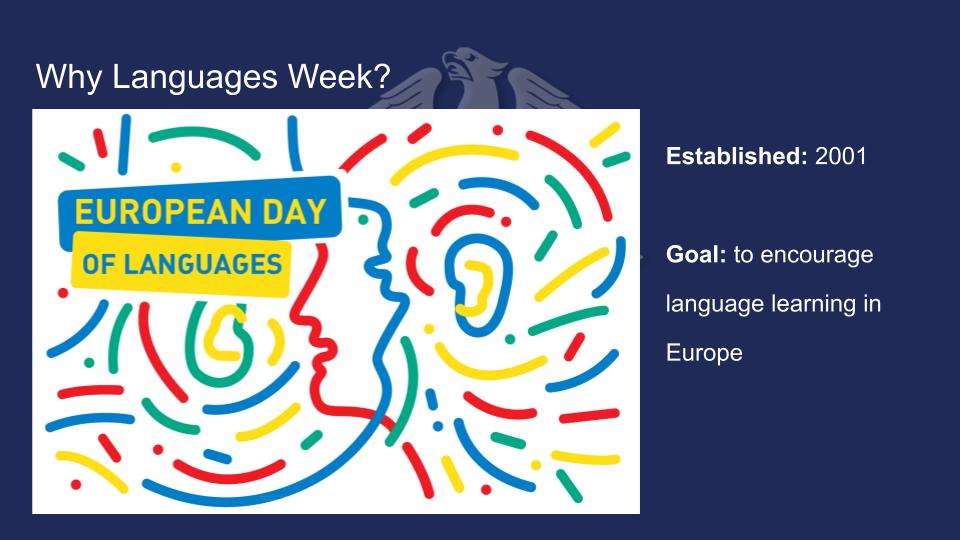
Epsom Languages Society took charge of promoting this special day at Epsom, organising a series of engaging activities that truly exemplified the power of language. A language detective quiz, an open mic night where participants showcased songs from their mother tongues, and an international snack sale by the Business Studies and Economics (BSE) Society were just some of the highlights.
One of the things that makes Epsom truly unique is its rich diversity. With over 28 nationalities represented in our student body, our school is a melting pot of cultures. This diversity not only facilitates cultural exchanges among students but also nurtures an international, indeed a global mindset. It's a preparation for our students to thrive in a world that is increasingly interconnected and interdependent.
During her assembly, Ms. Macleod posed a thought-provoking question to our students: How many of them consider themselves to be monolingual, and how many are multilingual?
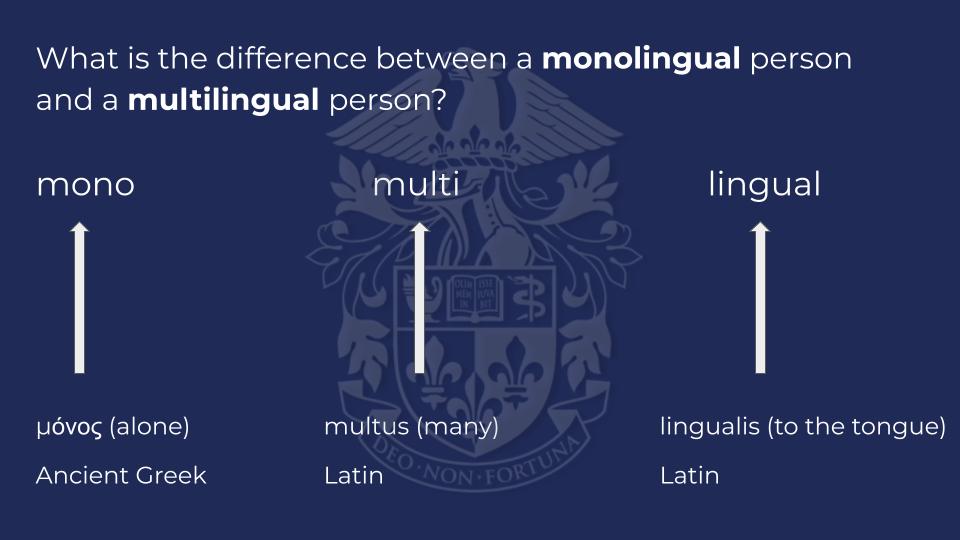
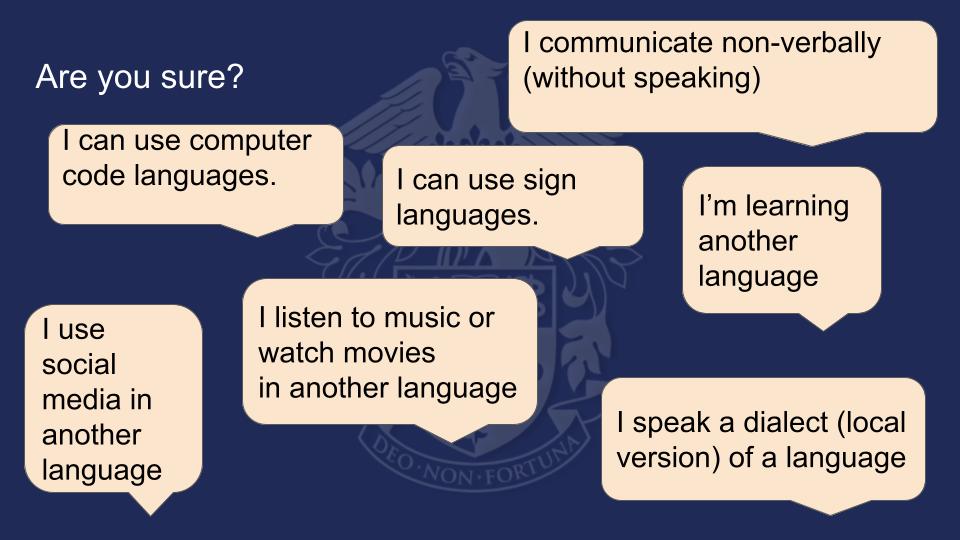
As Ms Macleod explained what being multilingual really means, more hands began to rise. Our communication is more than words - 70% of what we communicate is non verbal.
Ms. Macleod also enlightened us on the profound significance of language learning. Beyond the obvious ability to communicate, language learning strengthens the brain and makes it more resilient against diseases.
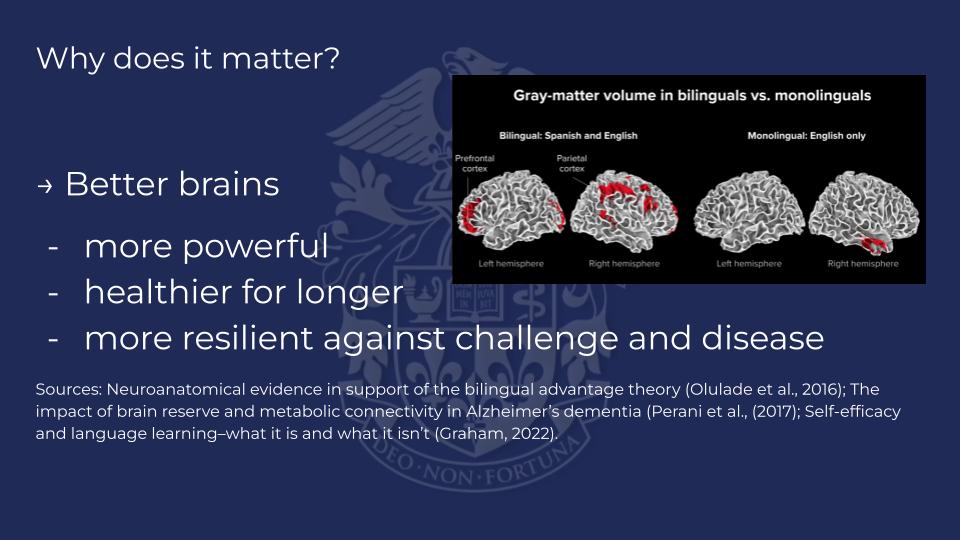
Language acquisition opens doors to different cultures and ways of thinking, broadening our horizons and offering unique insights into the world.
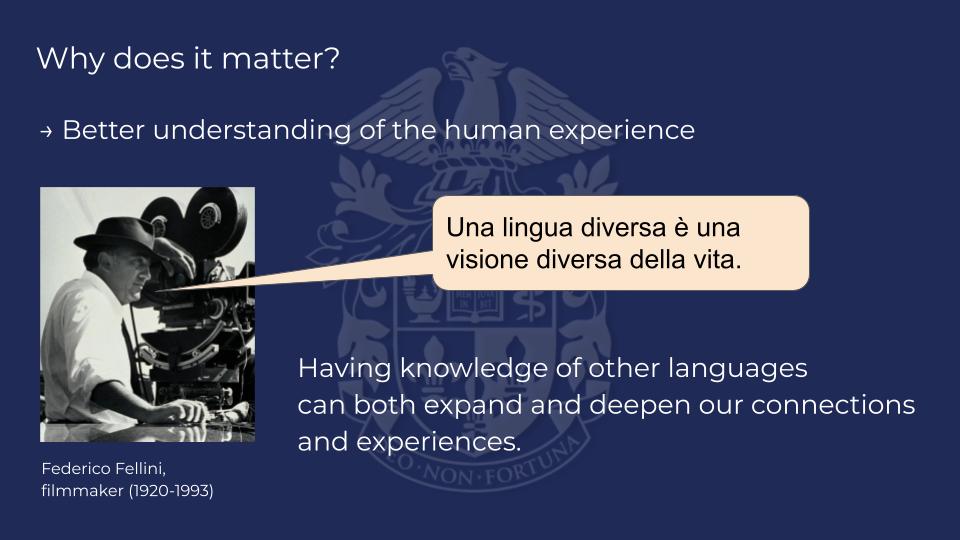
One captivating moment of the assembly involved a picture presented by Ms. Macleod. She asked us what words came to mind when we looked at it.

Some students responded with ‘cold’, ‘grey’, 'gloomy' and 'sad,' but Ms. Macleod added a unique perspective. To her, the picture was 'dreich,' a Scottish term that encapsulates the feeling of heavy rain or moisture in the air, accompanied by a tranquil gloominess. It was a perfect example of how language can capture complex emotions that might be elusive in other tongues.
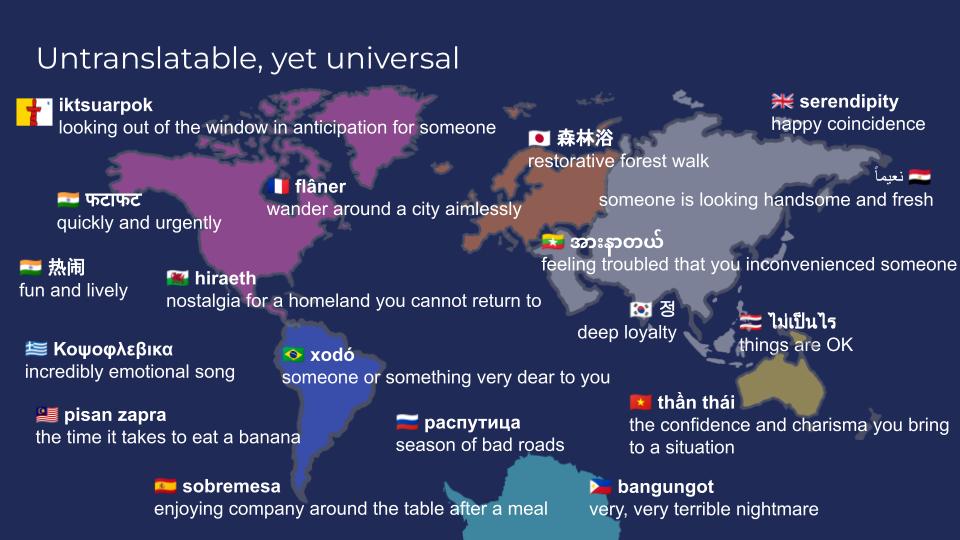
Another striking demonstration by Ms. Macleod was the revelation of words in different languages that lack direct translations into others. For instance, 'hiraeth' - a Welsh word to which I personally have a connection - describes a deep longing for one's homeland, encompassing the landscape, its people, and the associated culture. This beautifully illustrates how language can encapsulate intricate feelings and experiences that might remain unexpressed otherwise.
In essence, Ms. Macleod emphasised the incredible power of language. We are not just users of words; our words shape our thoughts, and our thoughts, in turn, influence our words. Learning new languages offers us the invaluable ability to think from different perspectives, to see the world through diverse lenses. Just like music or scent, words have the power to evoke profound emotions, enriching our understanding of the world and the people in it.
In conclusion, our assembly served as a reminder of the treasures that lie within the world of language. It transcends mere communication; it connects us to cultures, broadens our minds, and allows us to express sentiments that might be inexpressible otherwise. At Epsom, we cherish this diversity of languages as a gateway to a richer, more interconnected world.
We hope that you enjoy the articles to come and wish you all the very best for a restful weekend.
Happy Reading and Happy Friday!
Best wishes,
Mr Matthew Brown,
Headmaster.
Follow us on Instagram
A Message from our Leadership Team - Mr Stearman, Head of Key Stage 3
Curiosity drives us into the unknown, it challenges our minds and makes us discover.
From the Mars Rover to great explorers such as Sir Ranulph Fiennes, humans have constantly discovered and asked questions. Philosopher William James defined curiosity as “the impulse towards better cognition”, this is education. I feel as though, as adults, we lose our natural curiosity, children often ask us ‘how, why, when’, I want all of our students and families to be more curious, be creative, read, ask questions, explore the world around us and nurture your child’s interests.
What is curiosity?
Curiosity, often referred to as the driving force behind learning, plays a pivotal role in the development of secondary-aged students. Adolescence is a time of growth, exploration, and self-discovery, and curiosity is the key that unlocks the doors to knowledge and personal growth during this crucial phase of life. Here are several reasons why curiosity is essential for secondary-aged students.
Fuel for Learning
Curiosity serves as the fuel for learning. Secondary students are exposed to a wide range of subjects and concepts, and a curious mind is more likely to engage with and retain information. When students ask questions, seek answers, and explore topics independently, they are more likely to excel academically.
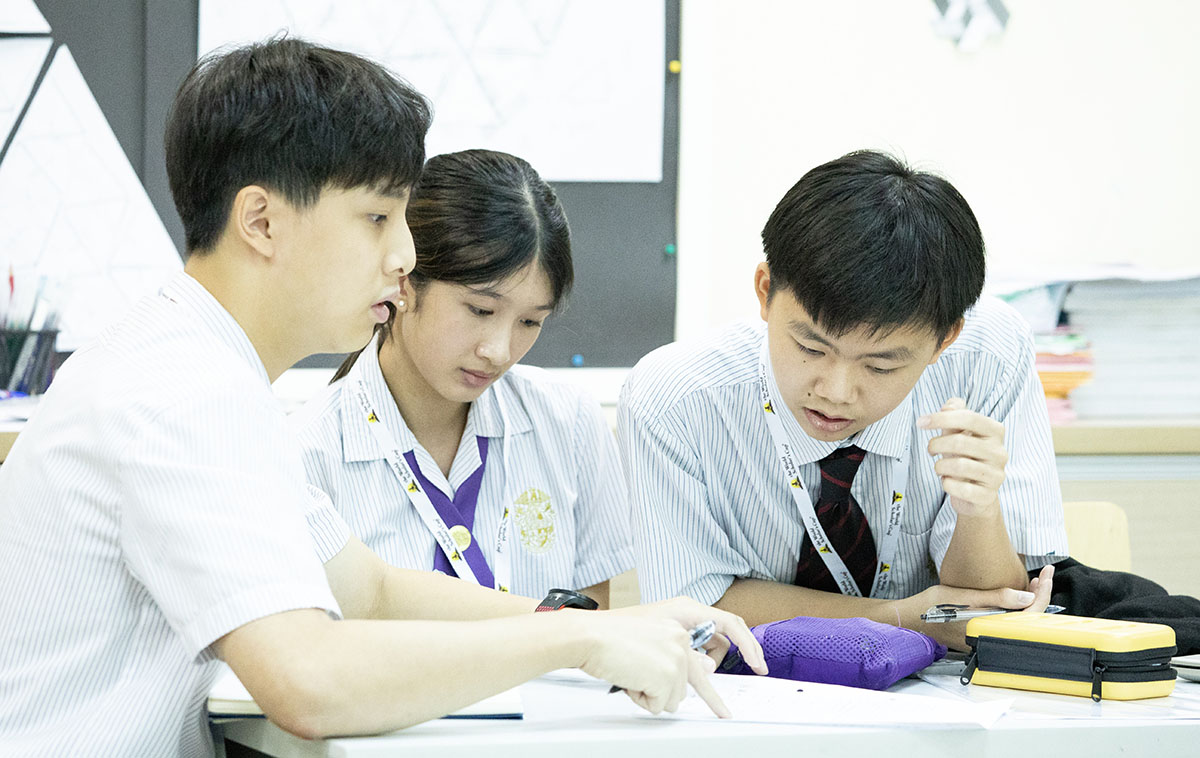
Critical Thinking
Curiosity encourages critical thinking. It compels students to question assumptions, consider different perspectives, and evaluate information critically. This not only helps them in their studies but also equips them with essential life skills, enabling them to make informed decisions.
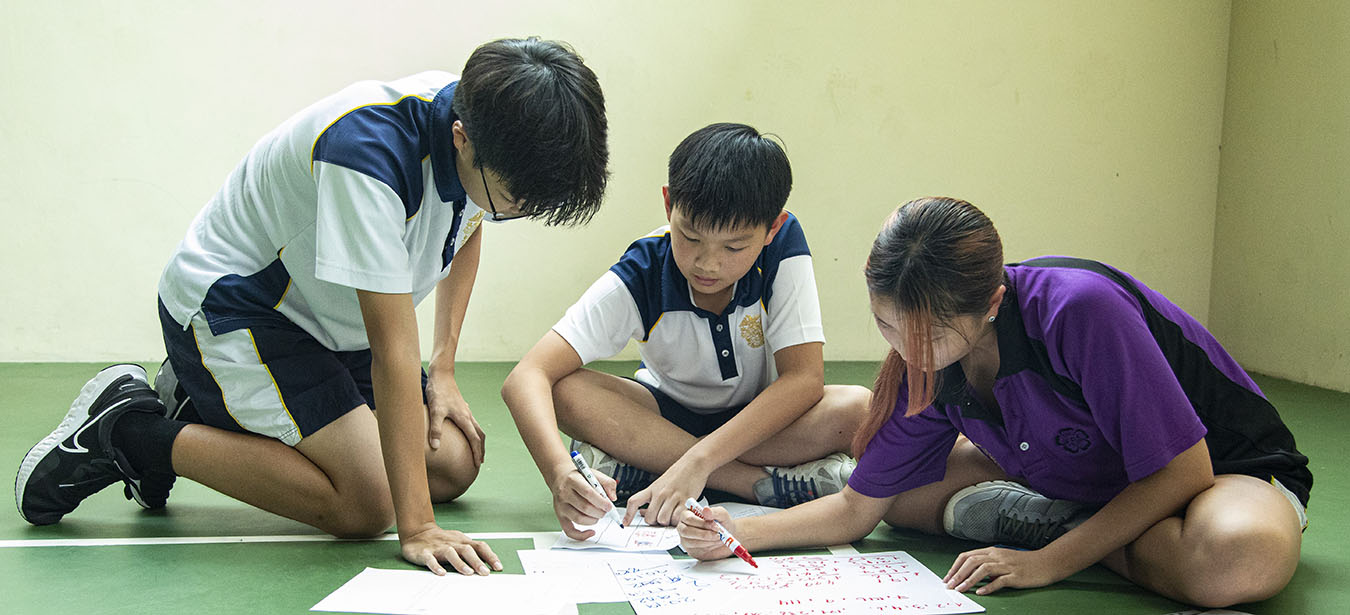
Motivation
Curiosity is a powerful motivator. When students are genuinely curious about a subject, they are more likely to be self-motivated to explore it further. This intrinsic motivation can lead to better study habits and a deeper understanding of the material.
Creativity and Innovation
Curiosity is the bedrock of creativity and innovation. Secondary students who are encouraged to ask "what if" and "why not" questions are more likely to develop creative problem-solving skills. These skills are invaluable in the modern world, where innovation drives progress.
Personal Growth
Adolescence is a time of self-discovery and personal growth. Curiosity allows students to explore their interests and passions, helping them define their identities and develop a sense of purpose. It encourages them to step out of their comfort zones and embrace new experiences.
Resilience
Curiosity fosters resilience. When students encounter obstacles or failures, curiosity helps them view these challenges as opportunities to learn and grow, rather than as setbacks. This resilience is a valuable trait that prepares them for the challenges of adulthood.
Global Awareness
In an interconnected world, curiosity about different cultures, societies, and global issues is essential. It promotes empathy and a broader understanding of the world, which is crucial for fostering responsible and informed global citizens.
Preparation for Future Careers
Many of the jobs of the future will require adaptability, problem-solving, and continuous learning. Curious students are better equipped to thrive in a rapidly changing job market as they are naturally inclined to seek out new knowledge and skills.
In conclusion, curiosity is a fundamental quality that secondary-aged students should cultivate. It not only enhances their academic performance but also equips them with essential life skills, fosters personal growth, and prepares them for the challenges of the future. Encouraging curiosity in secondary education is not just about acquiring knowledge; it's about nurturing a lifelong love for learning and a mindset that will serve students well throughout their lives.
I will leave you with two quotes I used in my assembly, which I hope will inspire you and your family to embrace your inner child, be more curious!
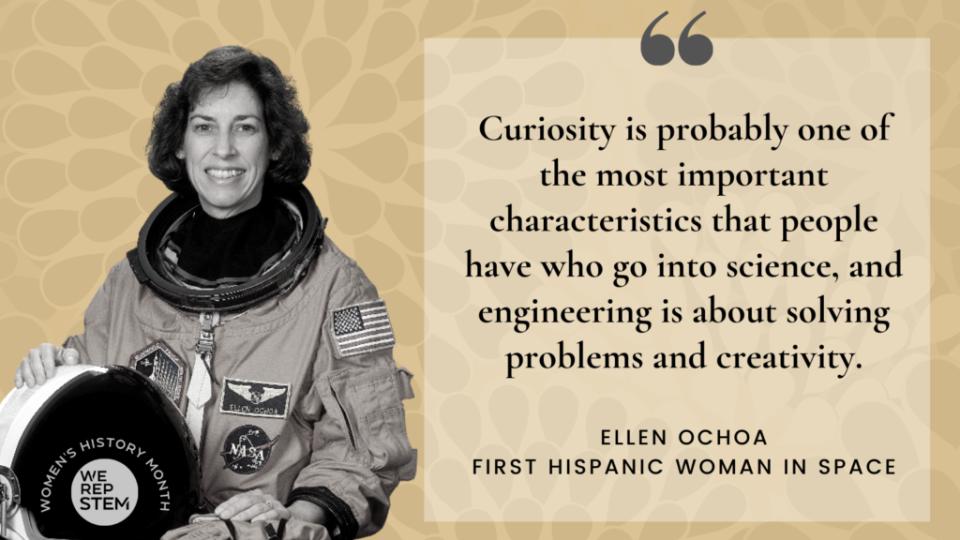
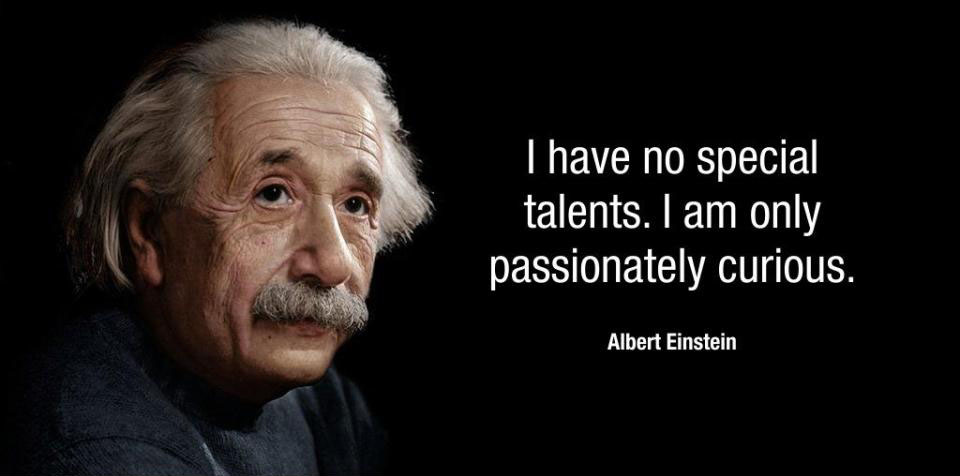
Recommended Reading!
Pictured here are Mr Kevin Hill, our Head of EAL, alongside Kanato, Year 8 Holman House.

Mr Hill is delighted as Kanato has always said that he does not like to read BUT …He has recently discovered Mr Hill’s Resident Evil series! He is now hooked!

J.K. Rowling was clearly right - Kanato just needed to find the right book!
What will be the book to get you hooked on reading?
Happy Reading and Happy Friday!
Best wishes from Epsom EAL team 🙂
A Message from Granville House
This month, I am very pleased to announce that Umair is our Granvillian of the Month. Anyone who knows this fine young man probably understands why he was selected, but why exactly was he chosen this month, and what was his X factor?
Certainly there is fierce competition during the selection process and there are a number of Granvillians that have excelled this month in various fields to a level some might consider above Umair: Junwoo scored the highest in the recent EAL mock iGCSE examinations; Hong Ming secured a trip to Yale University and nine gold medals for his participation earlier this month in the Global Round of World Scholar’s Cup, and; Jacob and Alistair placed first and second respectively in the Inter-House Cross Country.
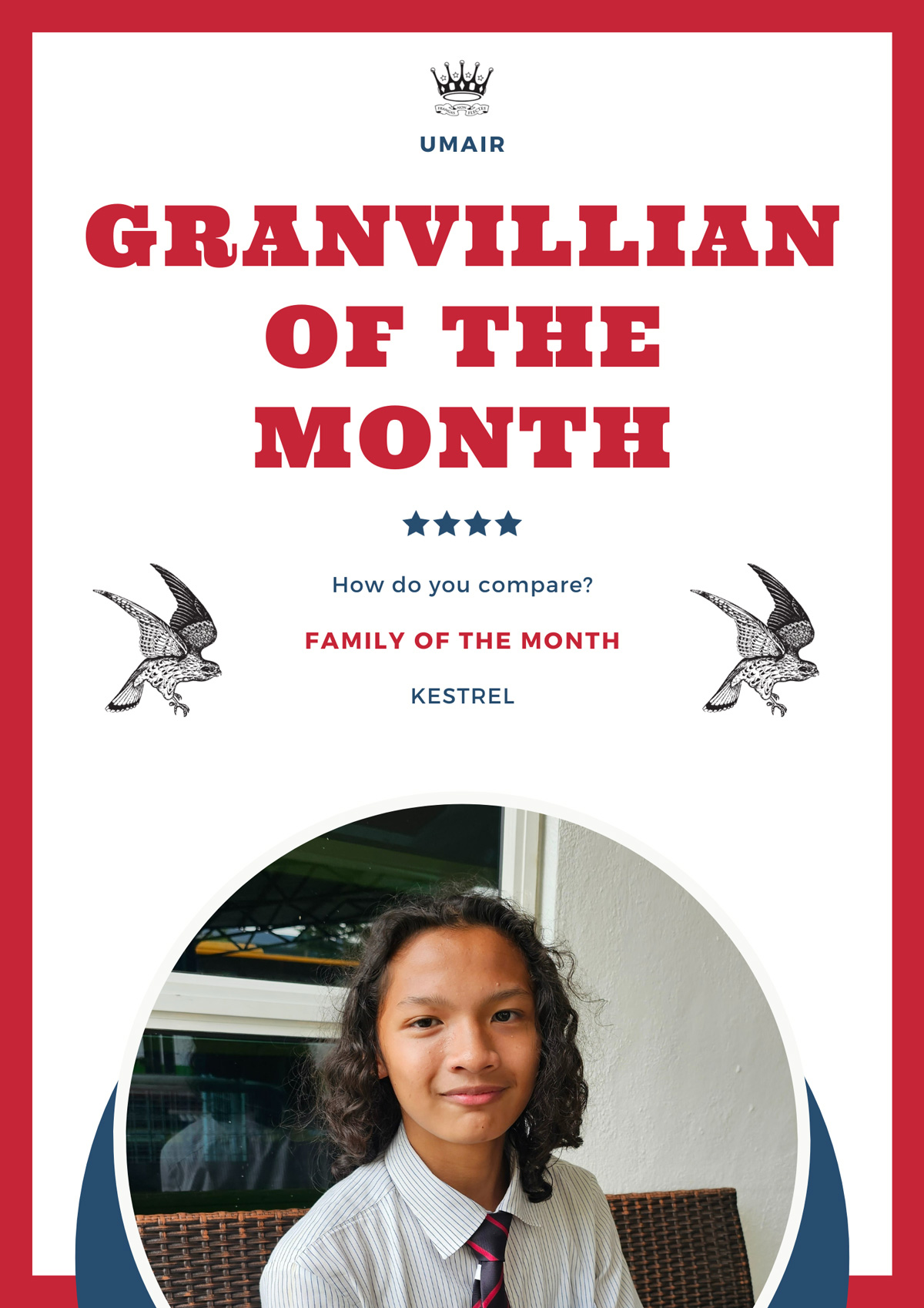
We have also seen significant dedicated action by other Granvillians for the benefit of our community: Leo has organised the distribution of our new varsity jackets; Daniel has provided a detailed action plan for how our house is able to raise funds and otherwise support Yayasan Chow Kit (a local crisis and drop-in centre for at-risk children and teenagers), and; Sharvvind, Soshi and Peihu have marshalled our forces for the recent inter-house competitions.

So is the selection process based more upon merits: the awards given by teachers for exceptional work or behaviour? Certainly Umair has received a lot of merits since the beginning of term: seventeen to be precise but this only narrowly beats Shang Jing at sixteen and both are pipped by Charles at eighteen (and counting). These merits are a clear indication that a student is performing well in school but are not the decisive factor.
Perhaps, Umair’s selection reflects the way that he has embraced life in his new boarding house: his participation; his selection to become Tutor Group Leader; his bravery to audition for the upcoming school musical We Will Rock You, or; his success in being selected to play the role of Paul McCartney. Perhaps, it reflects how he has embodied the values that we hold dear such as honour, courage and kindness. Perhaps it just reflects our gratitude for having his sunny disposition and positive attitude around the boarding house - well done young man!
Dean Jones
Houemaster Granville House
Welcome to Epsom Prep School!
Marvellous Maths
Last weekend, 5 students participated in the International Mathematical Olympiad National Selection For Malaysia. The first round of the Olympiad is a pathway to select top students to represent Malaysia in some of the most prestigious mathematical competitions in the world.
The students completed a two and a half hour online test on 23rd/24th September, during which they were exposed to challenging problems that require creative and mathematical thinking. The duration of the test alone requires resilience and perseverance! We look forward to receiving their results later this year.
A huge well done to Dillon (Year 13, Granville) Maize (Year 13, Granville ), Khai Zhe (Year 11, Propert), Allyssa (Year 10, Rosebery) and Izz (Year 7,Carr). Four of them are pictured here during Competition Maths CCA.
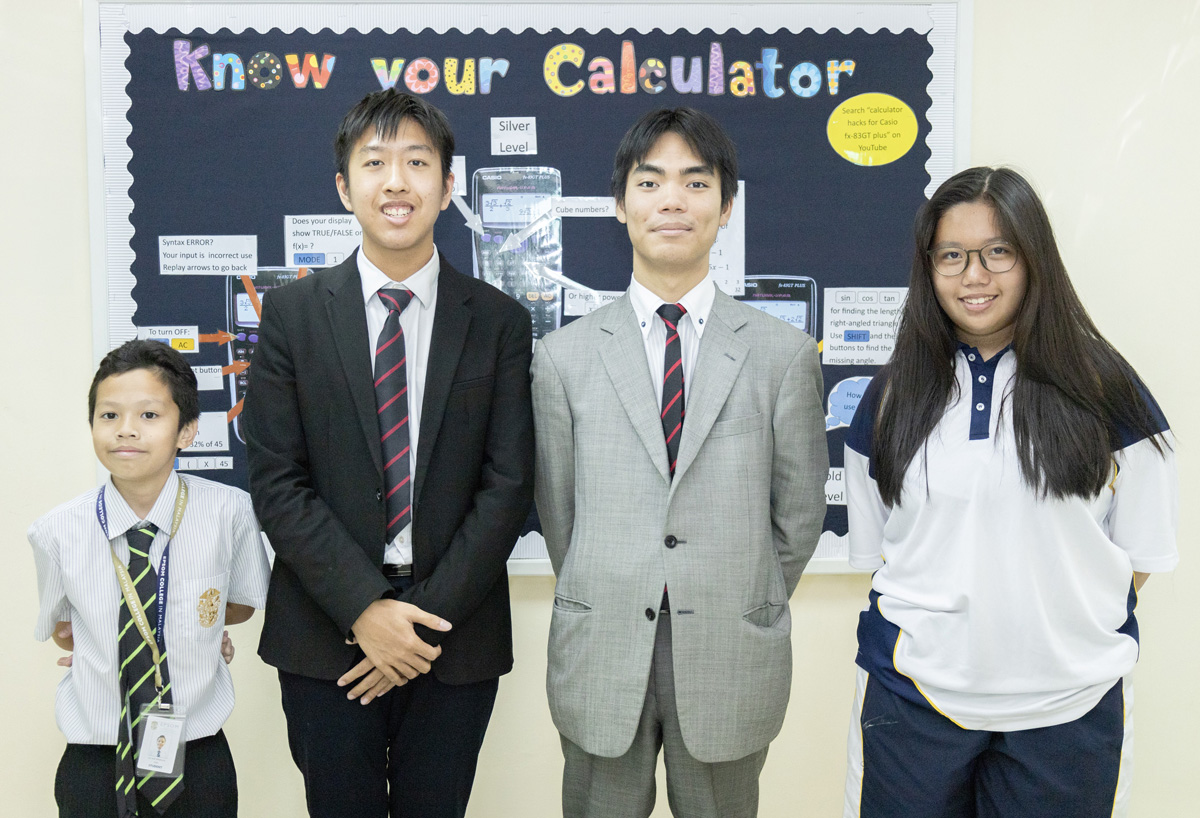

A shout out must go to Dillon, who was the first Epsom student to complete Level 4 of the Fobisia Code Breaking Maths Challenge. Dillon's contribution helped Epsom towards securing an impressive 12th place in the Level 4 competition out of 72 schools across Asia!
Best wishes,
Ms Olivia Archibald,
Head of Epsom Mathematics Department.
Prep School Maths
Last week, Epsom Prep School students participated in the FOBISIA Code Breaking Competition 2023. Maths and code breaking have a long and shared history. The skills that make good mathematicians - problem solving, logical thought and perseverance - are the same skills that make great code breakers. Governments and companies that deal in digital data are always on the lookout for talented mathematicians; so the students who have successfully participated in this competition are paving their way to success already!
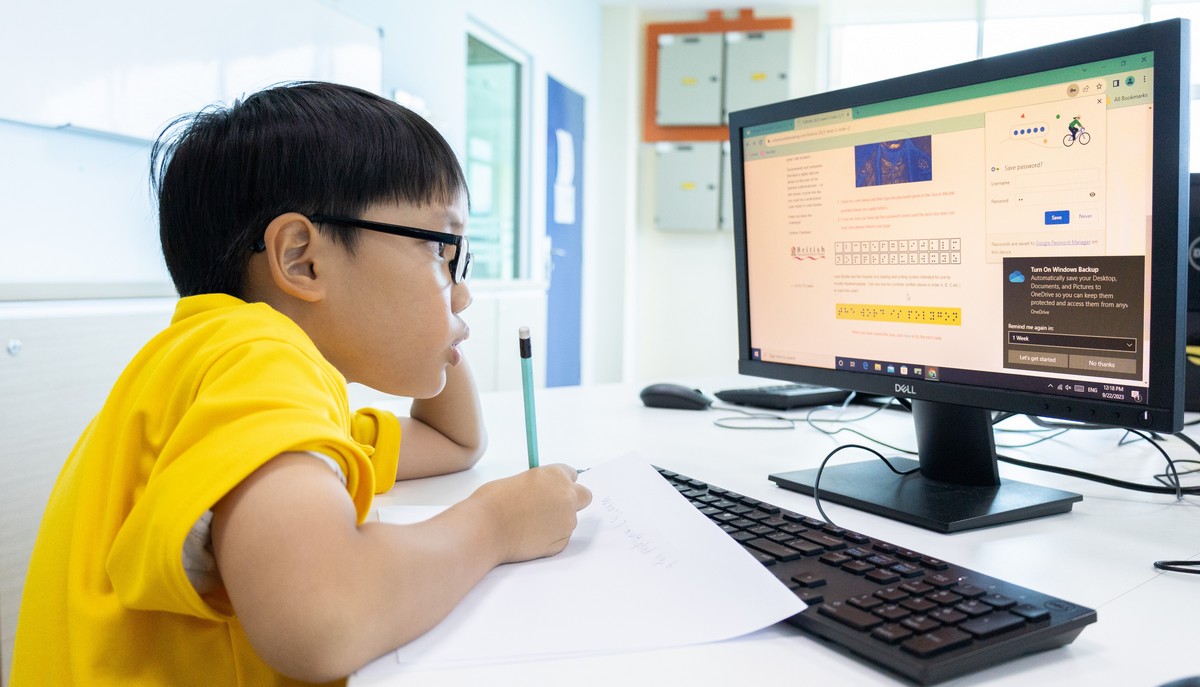
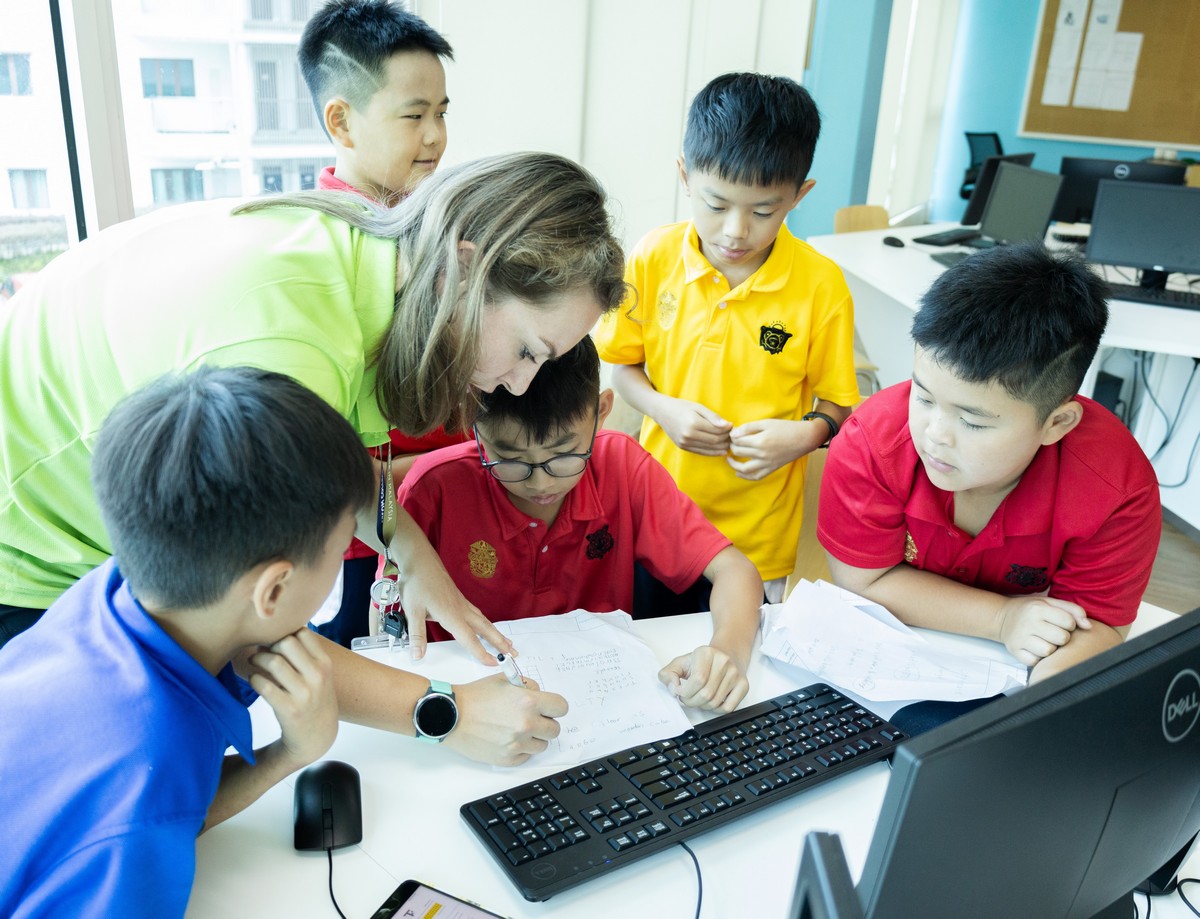
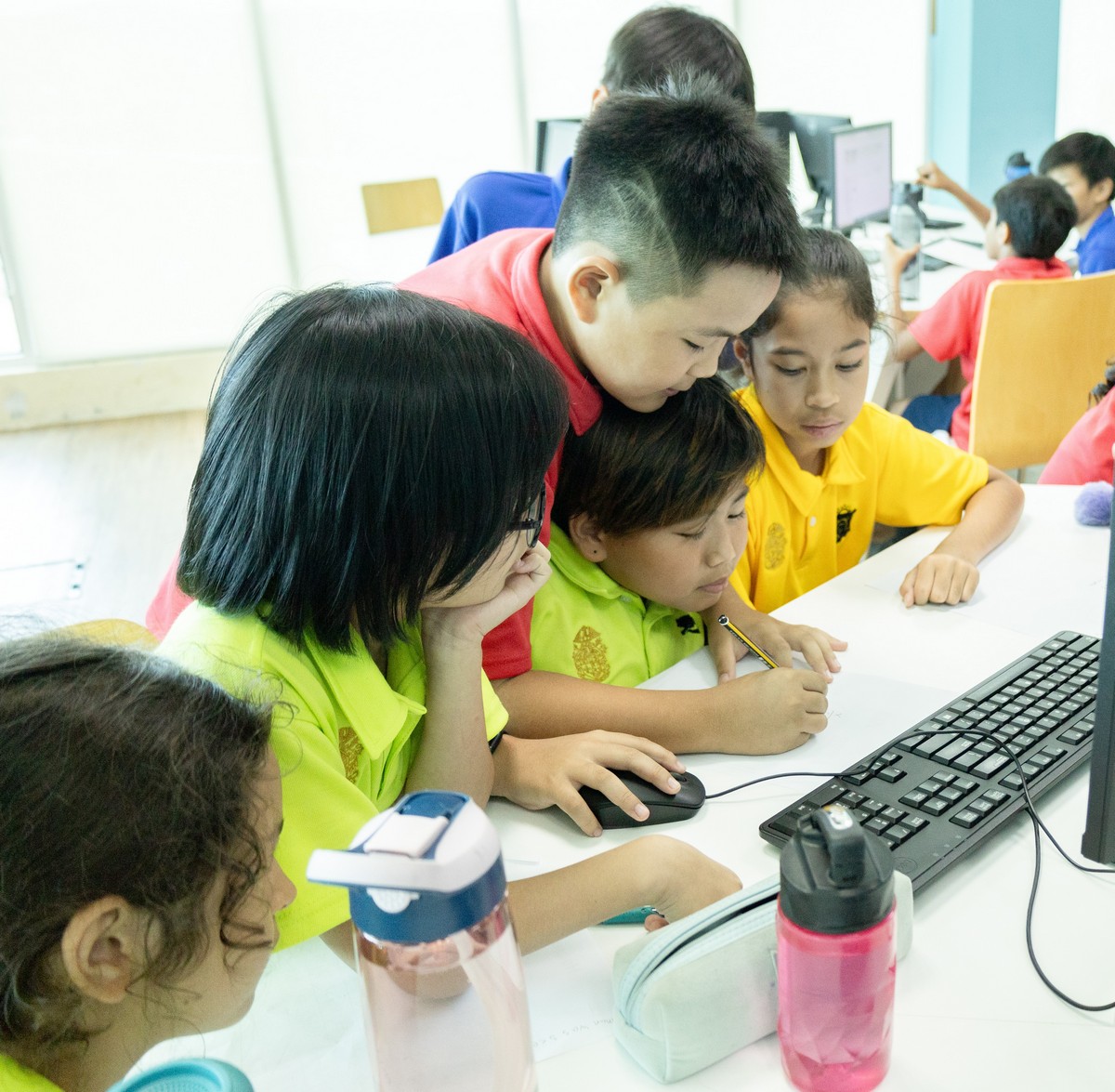
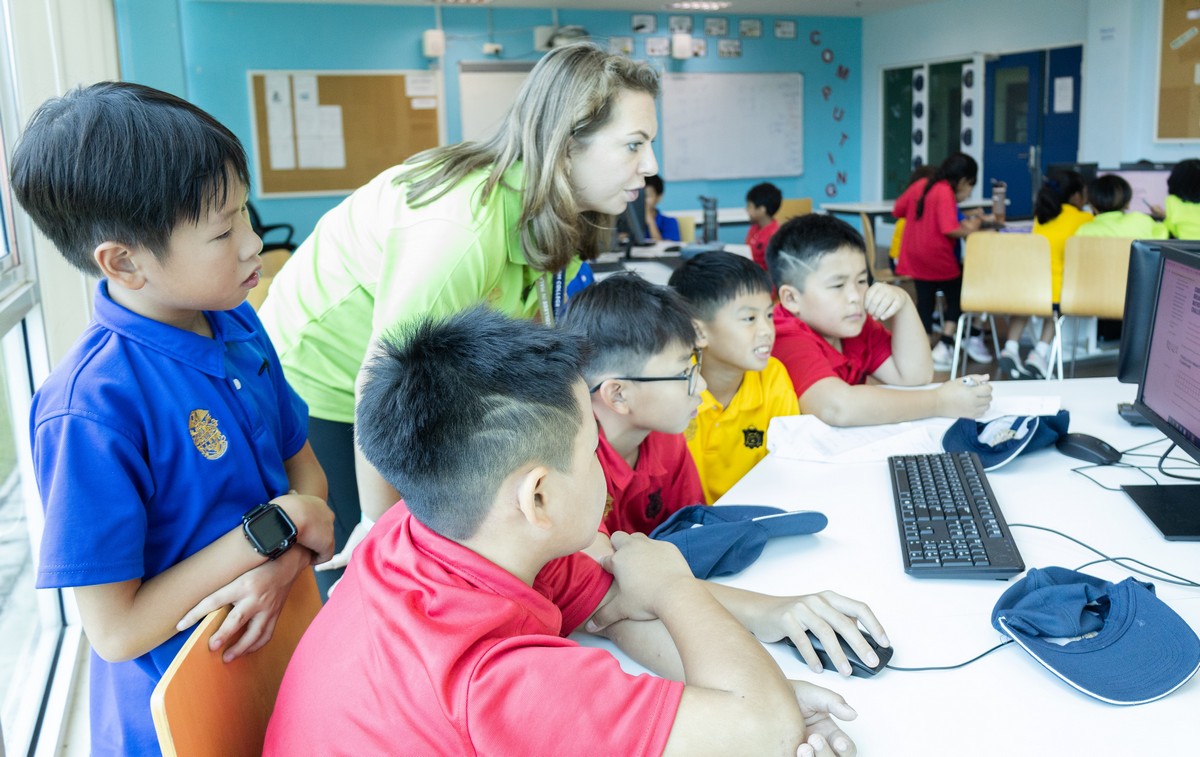

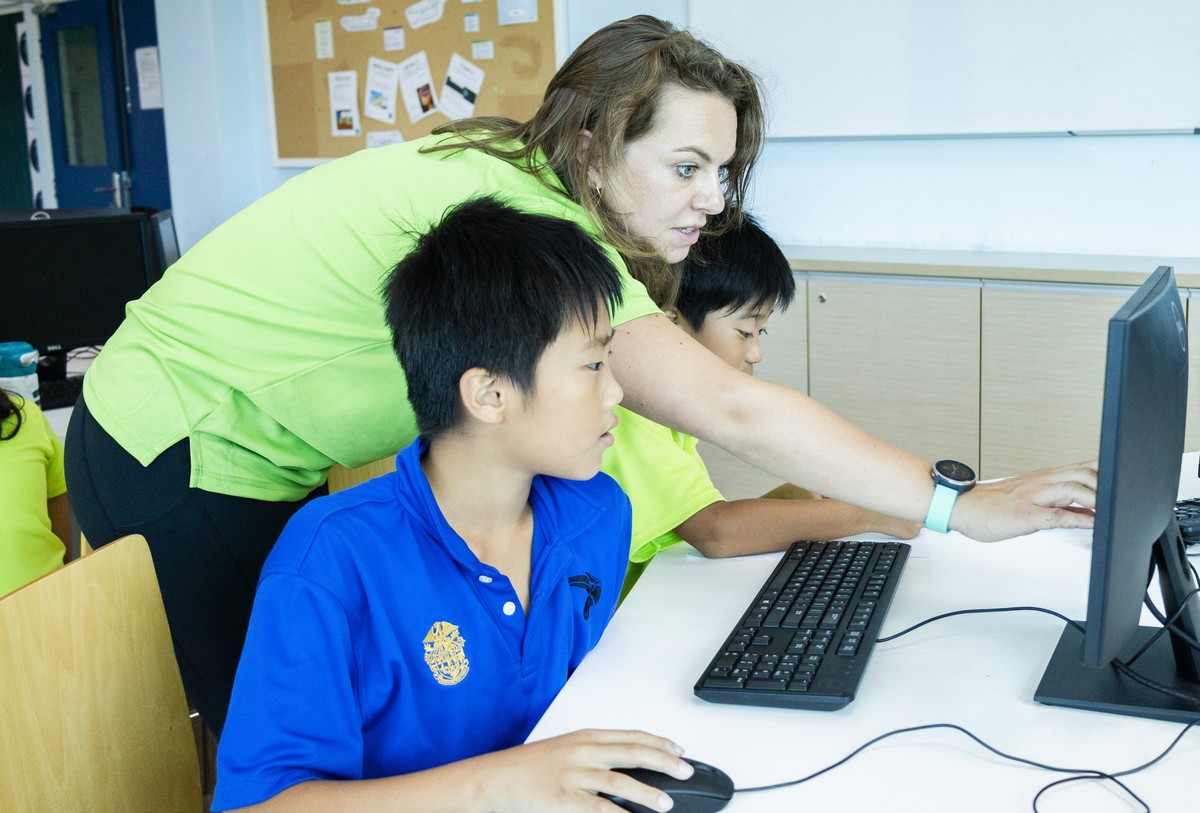
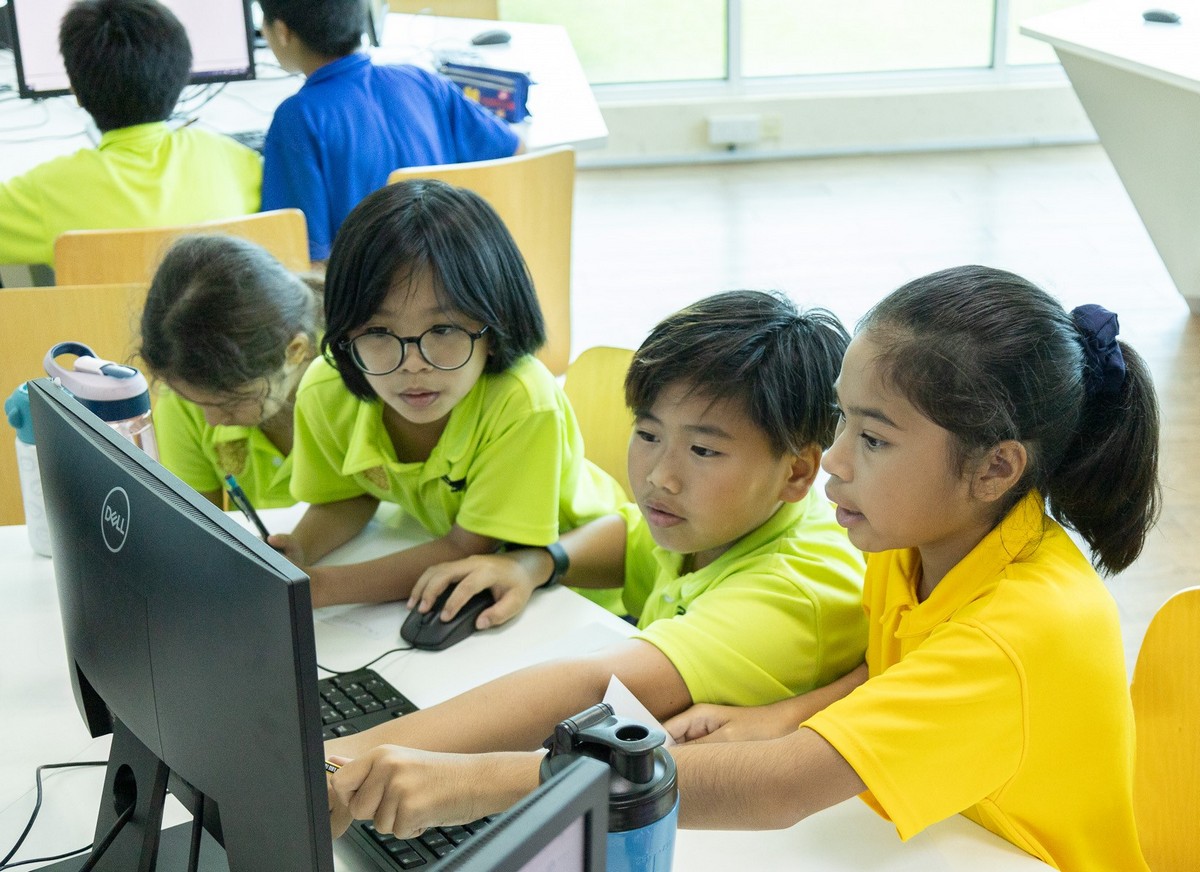
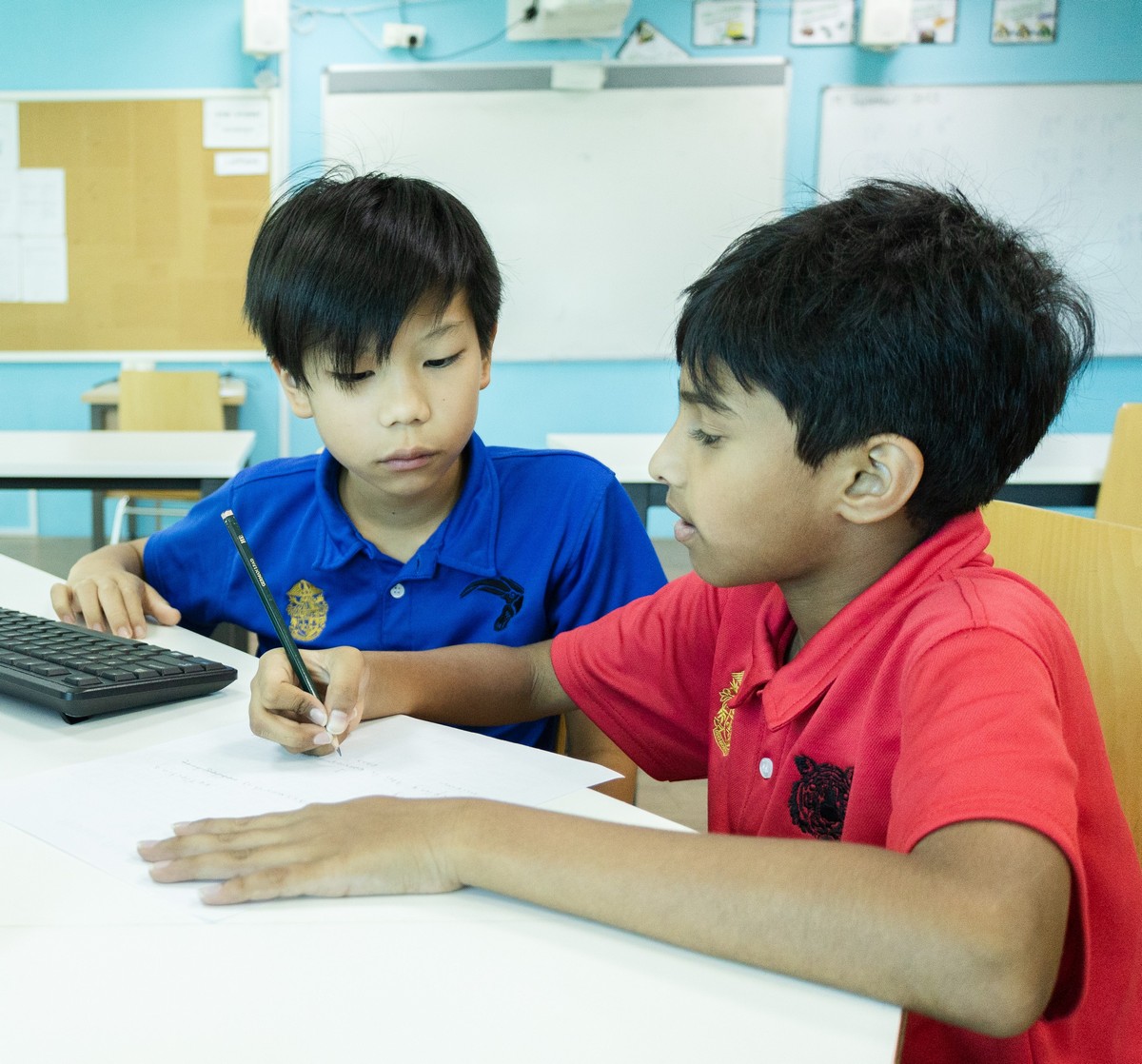

The children worked together to solve various codes from Descates’ grid to the International Code of Signals. They really enjoyed the challenge that each code presented and there were great cheers when we solved a particularly tricky one.
Drama Department Updates
WE Will ROCK YOU-School Edition
Music and Lyric by Queen
Story and Script by Ben Elton

Our Epsom College theatre has been alive with the unmistakable energy of our talented performers. From the onset—be it auditions, callbacks, or the nerve-wracking process of casting roles—there's been a tangible buzz surrounding this year's SNR musical selection, "We Will Rock You: School Edition."
The entire selection process has been rigorous. Deciding who lands which role is always a monumental challenge, and this year was no exception. Yet, against the backdrop of this challenging process was a display of enthusiasm, ignited by the announcement of the musical. It's wonderful to witness students not just excited about performing, but truly connecting with the narrative.
The "School Edition" of the classic musical has been tailored to young performers. It provides a perfect platform for them to channel their acting, singing, and dancing skills. But more than that, it delves deep into themes that are both timeless and relevant to the youth—individualism, the audacity to challenge conformity, and the unbridled spirit of rock. From what I've seen during rehearsals, it's clear these themes resonate with many in the cast.
The coming months, as we prepare for our performance, are certain to be demanding and yet incredibly rewarding. The cast and crew are not just putting on a musical; they're bringing a story to life, one that promises to “rock” our Epsom College theatre.
WE WILL ROCK YOU School Edition is presented through special arrangement with and all the authorised performance materials are supplied by Theatrical Rights Worldwide 1180 Avenue of the Americas, Suite 640, New York NY 10036. www.theatricalrights.com
A Message from our Geography Department
Hello from the Geography department. It has been a great start to the year where students have been able to showcase their existing geographical knowledge to myself and Mr Stearman, as new members of the Epsom family.
In my first message, I wanted to take the time to show how relevant Geography is to us all and how our curriculum links to events that are occurring throughout the world. Our Year 8 cohort have made an impressive start to their unit of weather and climate threats. Knowledge and understanding of different types of weather and how patterns are changing is vital for the protection of our communities. This has only been made more pressing with the record temperatures and heat waves seen across the world this summer. A UN report published at the start of this month called for radical changes to stem warming as temperatures are expected to far exceed the target set by the 2015 Paris Climate Agreement. These excessive temperatures have been a contributing factor in the devastating wildfires that have increased in ferocity and frequency over recent Years, including those that devastated the Hawaiian town of Lahaina in August.
The town’s mayor has faced criticism for not utilising the advanced outdoor siren warning system that would have alerted residents of the fire’s approach. This system was put in place for another natural disaster, tsunamis created by earthquakes. Our Year 13 students are currently learning about living in hazardous environments that are subject to such disasters and how we can sustainably manage them. It is hoped some of these students can go on to help devise early warning systems that can prevent catastrophic scenes, such as those witnessed in the city of Marrakesh, Morocco.
As an historic city, Marrakesh has developed into a tourist destination, which leads me on to the fantastic work our Year 9 students have been doing. They have started the Year exploring the various forms of tourism and the impacts it brings. These can of course be negative, such as increased pollution, but also positive, with cultures mixing and learning from one another. This is something that I have the privilege of witnessing everyday in our own global community here at Epsom, particularly when teaching our Year 7 students who are always willing to share their knowledge as we learn about the countries of the world.
India became the fourth nation to land on the moon last month. Now you may not see the immediate link to geography here but it is a result of geopolitics and population dynamics. Our Year 10 and 12 students have been studying the growth in world population and the areas affected by overpopulation. These students will be able to tell you this is when there are not enough basic resources to meet the needs of a population. The most basic resource is water and yet only 2.5% of it is fresh, mostly locked in glaciers and ice caps. To fuel this population growth, the world’s biggest nations are in a race to find water sources on the moon.
Finally, our Year 11 students, who have just completed their mock, are about to start their coursework. This will see them conduct a geographical enquiry where they will collect primary data from the field. This is an apt reminder that geography is a practical subject and so watch this space for upcoming field trips!
I hope this has given you a small insight into what we are doing in Geography and why I believe it is a vital subject. We bridge the gap between natural and social science, with our students becoming the next great problem solvers.
Mr Sam Prestidge
Head of Geography
History Department Updates

The key focus for this Autumn Term in Key Stage 4 and Key Stage 5 has been the continuing preparation for the iGCSE and A Level examinations in History and Politics that will be taking place in May and June next year. It was pleasing that the early Year 11 Mock examinations completed last week pointed to the fact that results this summer should be very good but also has highlighted where some students need to improve. By receiving diagnostic feedback from exam scripts students have been able to reflect on how to improve further to ensure that they get their highest results possible in August.
All History exam students are also completing pieces of coursework that make up a significant part of the final mark. In Sixth Form students are completing a challenging 4500 word assessment on Tudor rebellions in the sixteenth century and Year 11 are working on a 2000 word essay analysing the effect of the Depression on Germany in the 1930s. These assessments are both important stepping stones in developing independent extended essay writing skills that will be required at all universities.
In Year 7 in History lessons students have been looking at how historians use evidence as well as chronology and after the Half term break will move onto studying the Romans followed by development of castles around the world. In Year 8 students are using primary historical evidence to interpret how life was different in the fifteenth century whereas in Year 9 History students have been studying events of the Twentieth Century and have started producing projects on Trench Warfare that generally look of excellent quality so far.
In Key Stage 5 Politics we have now moved onto Core Political Ideas and are focused now on Feminism looking at views on human nature, the economy and society. In Key Stage 5 History we are studying the Conservative governments of 1951-64 which has many links with what is happening in the UK at the moment with economic uncertainty and questions over leadership being at the forefront.
Last week was the Societies Fair in the Grayling Centre which was very well attended .The current Board of Directors of the Humanities Society (Alicia, Pei Wen and Teja) have done a fantastic job over the last year running a range of interesting talks and activities and I would like to thank them for their efforts. They are currently interviewing Year 12 students for the roles this year and I look forward to what exciting ideas they will bring to the Humanities Society moving forwards.
Finally I would like to welcome Andrew and Chantal Thompson to the History and Politics Department. They are both highly experienced GCSE and A Level teachers from the UK who have already made a great impression with students who are really enjoying their well-planned and very interesting lessons.
Mr. Dale
Head of History and Politics
Another Proud Moment For Epsom
Congratulations to Bernie, an alumni of Epsom, who graduated from our Fast Track Programme (accelerated A-level).
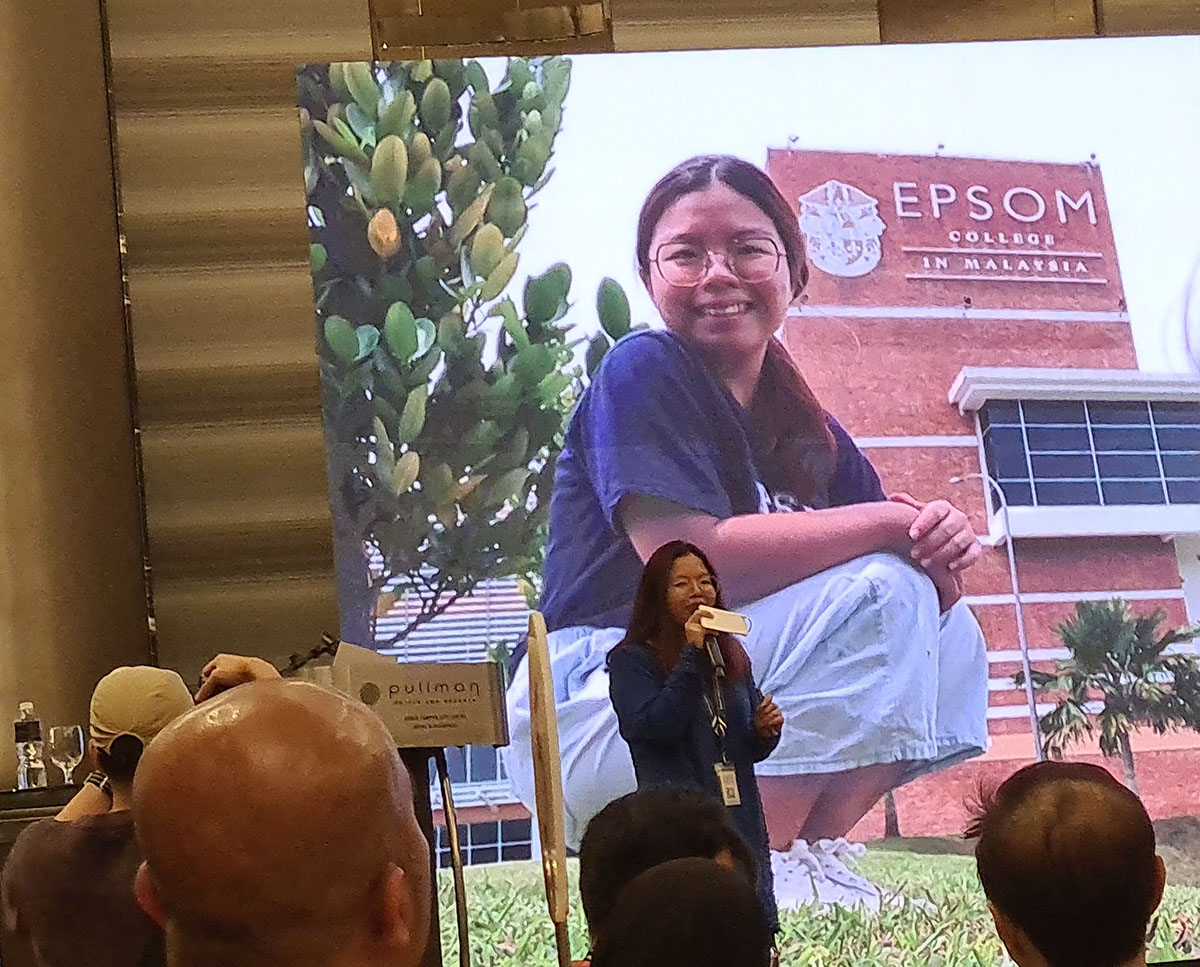
Bernie was recognised under the Closing the Gap movement and is also a recipient of the STAR Scholarship.
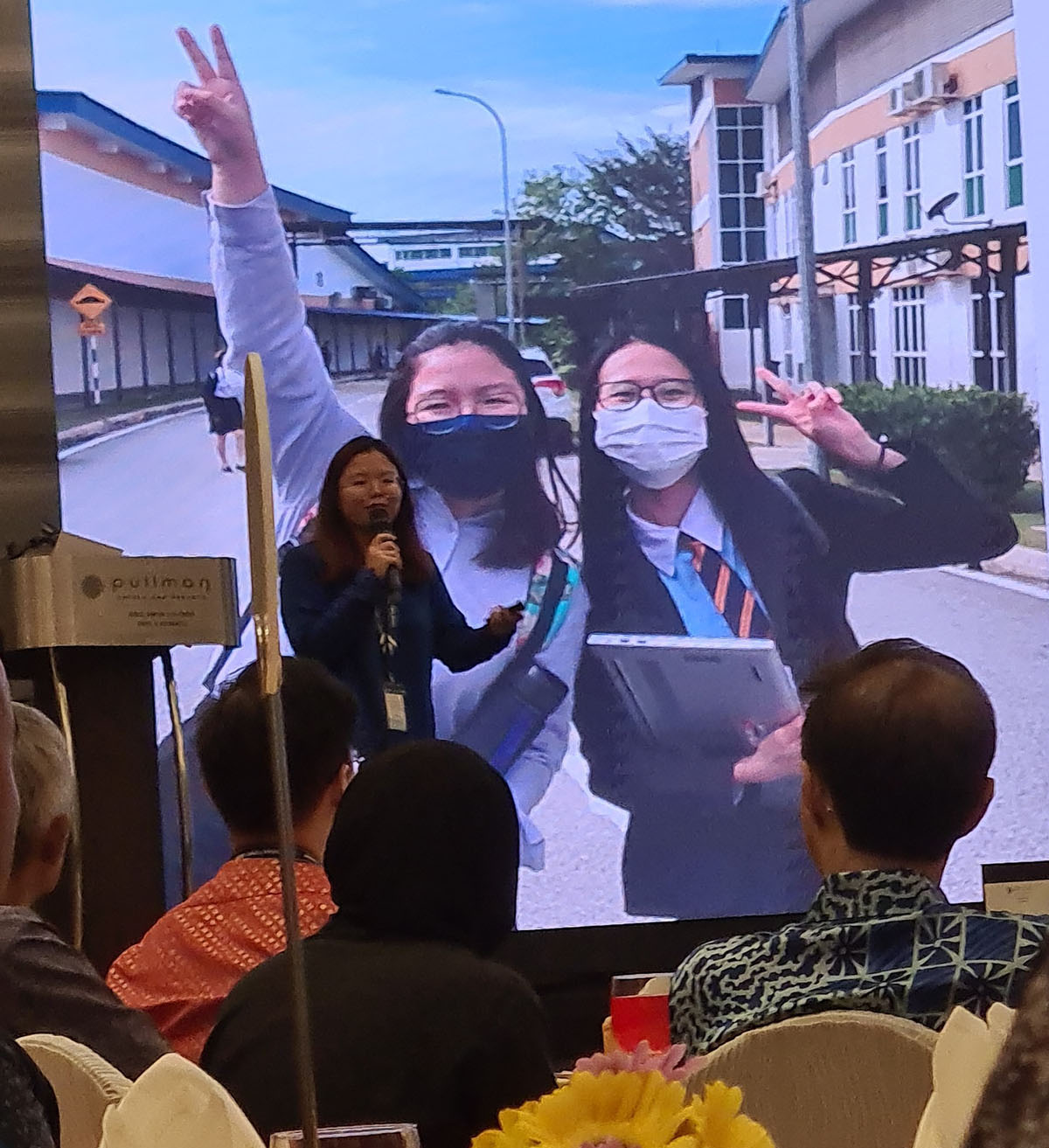
She was invited to share her success story at the YTAR event that Celebrated the 57th Anniversary of the scholarship at the Pullman Hotel, Kuala Lumpur this weekend. Bernie invited our very own Mr Subash, her Chemistry teacher, to attend this special event in recognition of the role that he played in supporting her along her journey.

Bernie faced significant personal challenges during her A-levels but demonstrated incredible resilience. She went on to achieve impressive grades: 1A* and 3 As. Bernie shared her appreciation of her success and thanked the Epsom community for the support that she received. We are extremely proud of Bernie and wish her all the very best as she embarks upon the next stage of her journey at university studying Phycology at Nottingham University.
Epsom Chemistry Department Updates
In the core practical session on Harcourt Essen’s Iodine clock experiment, Year 13 Chemistry students worked diligently on the preparation of the solution using the procedure prescribed in their student sheet. It involved going through the risk assessment and the detailed steps at length and then completing each procedural step with careful deliberation and analytical thinking.
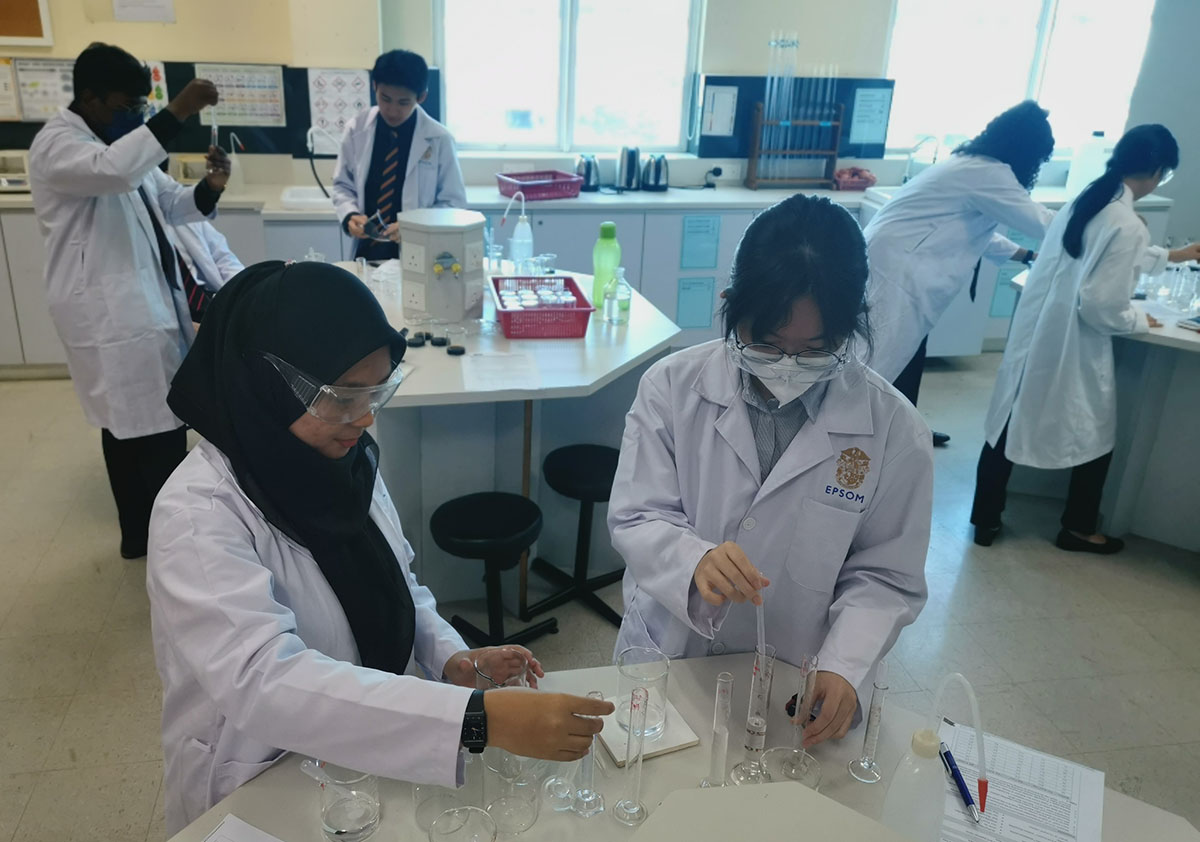
Step 1: Students measured 10.0 cm3 of potassium iodide solution into a small beaker standing on a white tile.
Step 2: Then they added 5.0 cm3 of sodium thiosulfate solution to the potassium iodide solution.
Step 3: Next, they added 10 drops of starch solution to the mixture in the small beaker. Starch acts as the indicator and is used in every trial of each experiment.
Step 4: Students then measure out 10.0 cm3 of the sodium peroxodisulfate solution and poured this into the mixture prepared in steps 1 and 2.
Step 5: They started the stop clock at this stage. They stopped the clock when a blue colour appeared in the beaker and noted the time taken. They analysed their results using a tabulated form of raw data.
Step 6: They repeated steps 1–5 using the volumes of sodium peroxodisulfate and potassium iodide solutions as mentioned in the student sheet. The total volume including the sodium thiosulfate solution always added up to 25.0 cm3, which was achieved by adding the correct volume of distilled/deionised water.
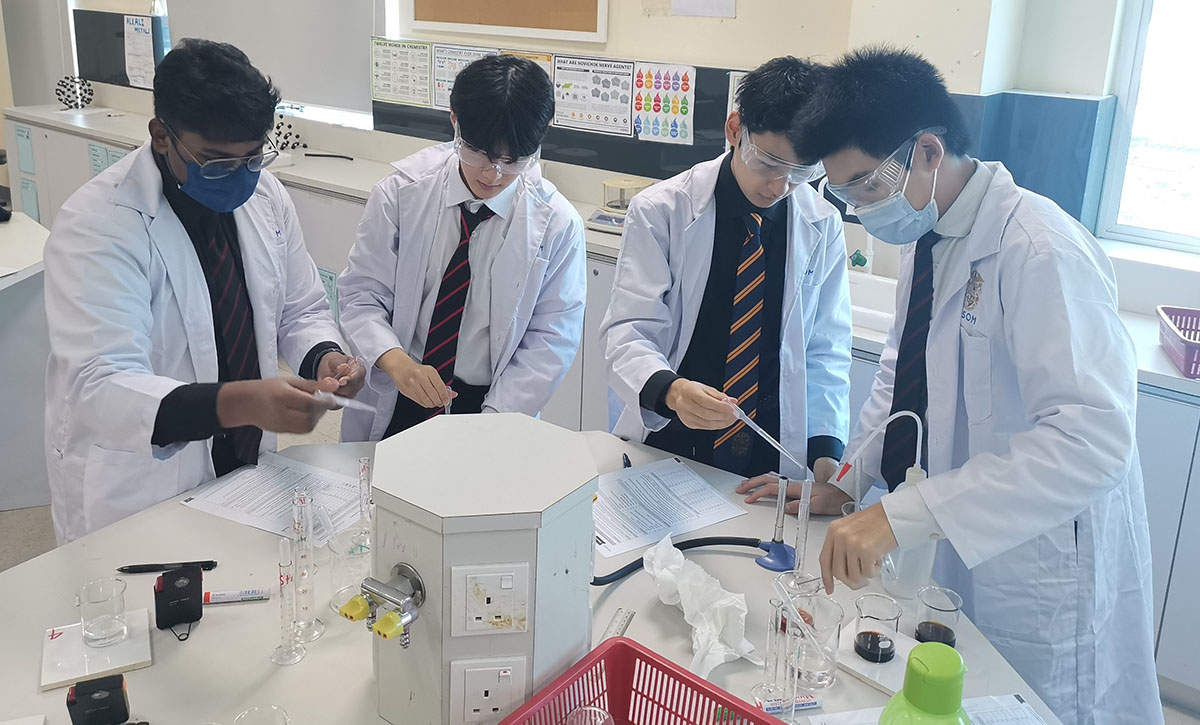
The results were processed using graphs to determine the order of reaction with respect to each reactant and therefore, the rate expression.
The discussions between students and the teacher at the end of the experiment allowed students to understand the significance of such analytical methods to determine rate mechanisms and the kinetics involved in chemical reactions. It was a great opportunity for students to train themselves on the appropriate use of measuring equipment, experimental observation and inductive and deductive reasoning skills through the continual progression of core practical sessions in A2 level Chemistry.
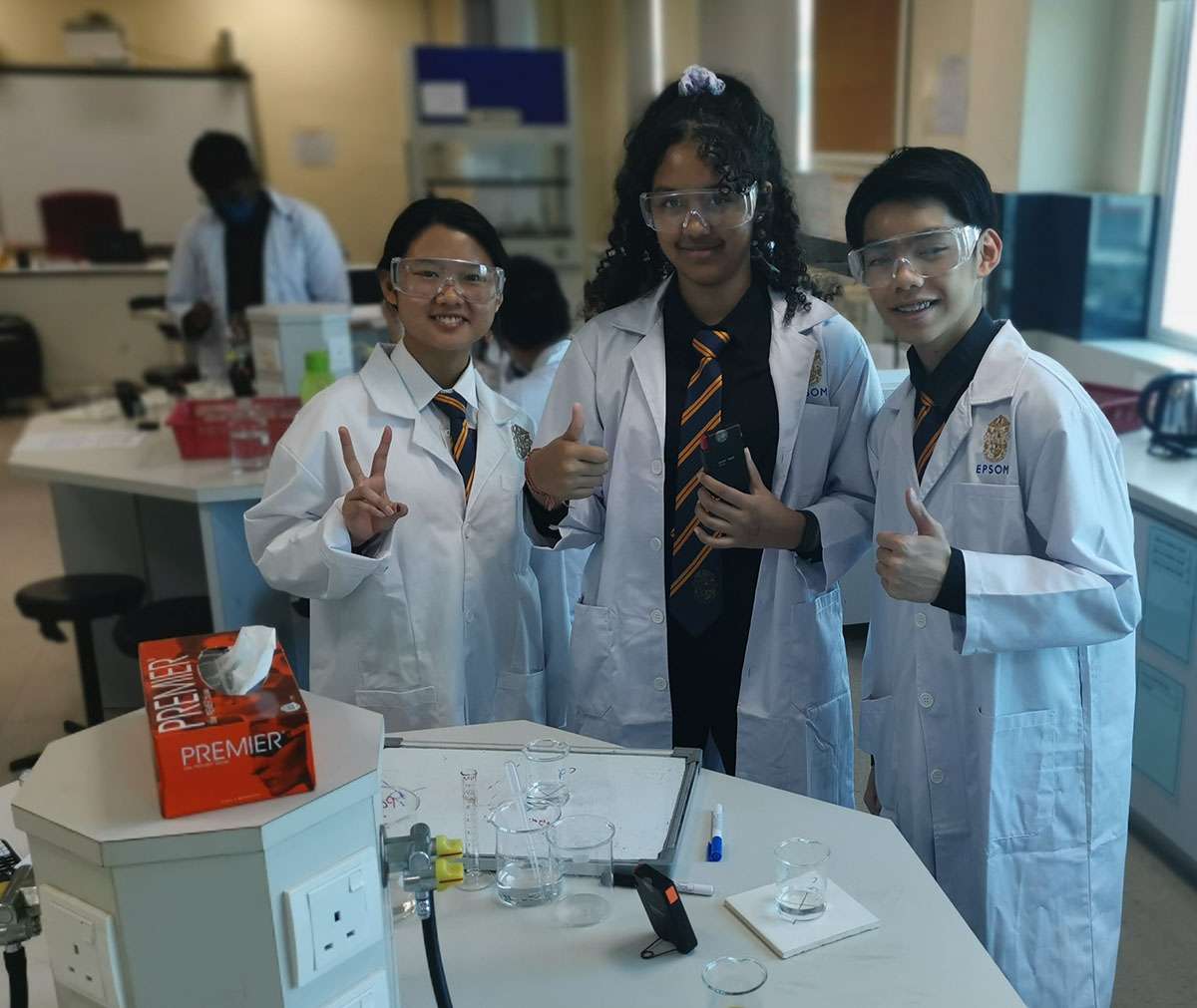
This reaction has wider real-world applications in the manufacture of topical antiseptics, radiopaque materials and electrochemical cells. As seen in the pictures, students thoroughly enjoyed completing this core practical experiment in Chemistry.
Mr. Mahesh Warrier
Head of Chemistry
Epsom vs Tenby 2023 in Football
Epsom’s football season has kicked off and so far the team have put on some triumphant displays. Leading up to the first friendly game of the season the squad have put in some training with the new La Liga football coach Diego Ramos and he has helped improve the team’s skills and qualities.

The first game of the season was a home game against Tenby EcoHill played on our very own rugby pitch. The boys put on a strong display and were comfortable victors. Focusing on some individual performances, goalkeeper Ethan made some good saves to keep a clean sheet whilst Striker Thomas and Central Midfielder Jacob both grabbed a hat trick of goals each.
Coming off of the back of a strong first result the squad travelled to Sunway International School to play their first away game of the season. After Jack scored the first goal of the game, off of a cross provided by Jacob, the opposition replied quickly with an equaliser. Another hattrick by Thomas, earned him Mr.Miller’s Man Of the Match, and a great performance from Jack, who grabbed four goals individually, the boys came out with an outstanding 11 - 5 result. After two very strong opening games the Epsom u18 boys look to keep pushing forward and improving overall as a unit racking up as many goals as possible along the way.
Great Golf
Adrianna, Year 9 Rosebery, represented Negeri Sembilan for the National State Golf Championship (MSSM) in the Girls Under 15 category which was held from 19th - 21st September 2023 in Danau Golf Club.

Adrianna did exceptionally well throughout the 3 day tournament, scoring 85, 83 and 81.
Adrianna secured 9th place of 43 players which was a very commendable effort considering she just entered this age group this year. She played against older girls aged 14 and 15 years old.
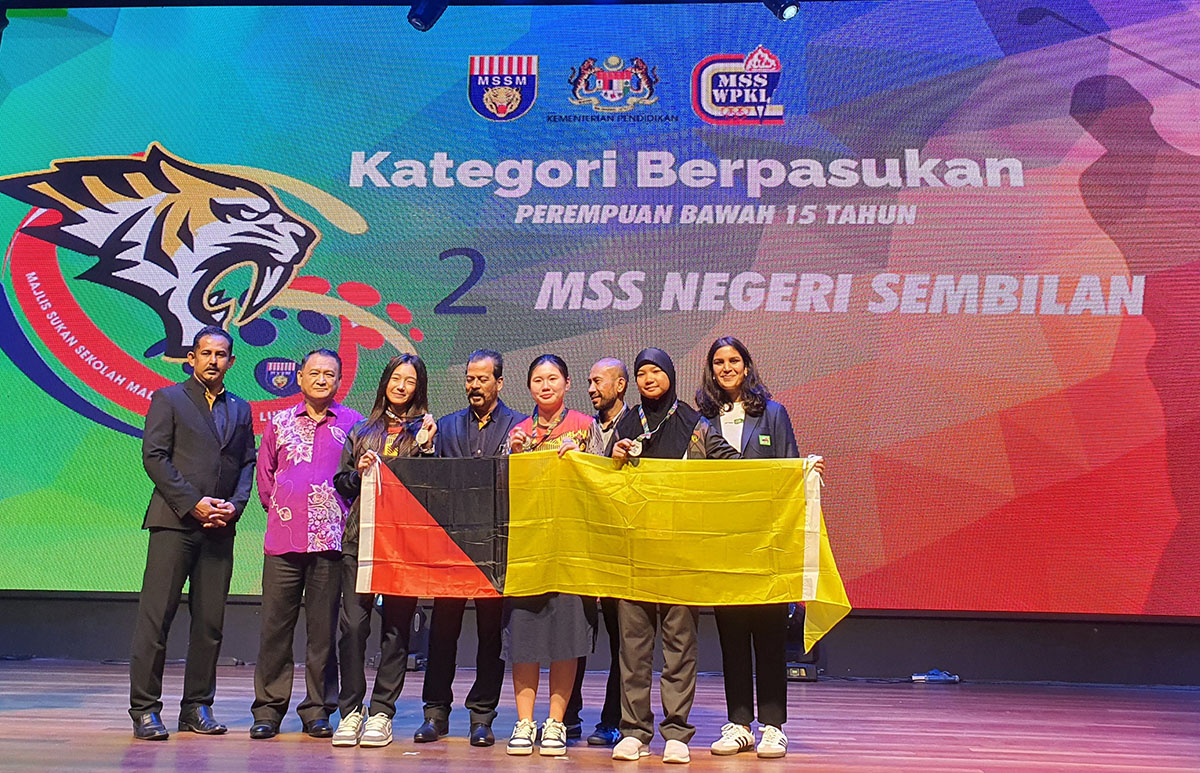
Adrianna secured a Top 10 place for the competition in the Girls U15 Individual category.
Adrianna together with her teammates earned a second spot finish for the Girls U15 Team Event coming in just behind the champion of Selangor.
Adrianna will be preparing for her next golf competition, the SportExcel Grand Final Circuit in Ayer Keroh Melaka next weekend.
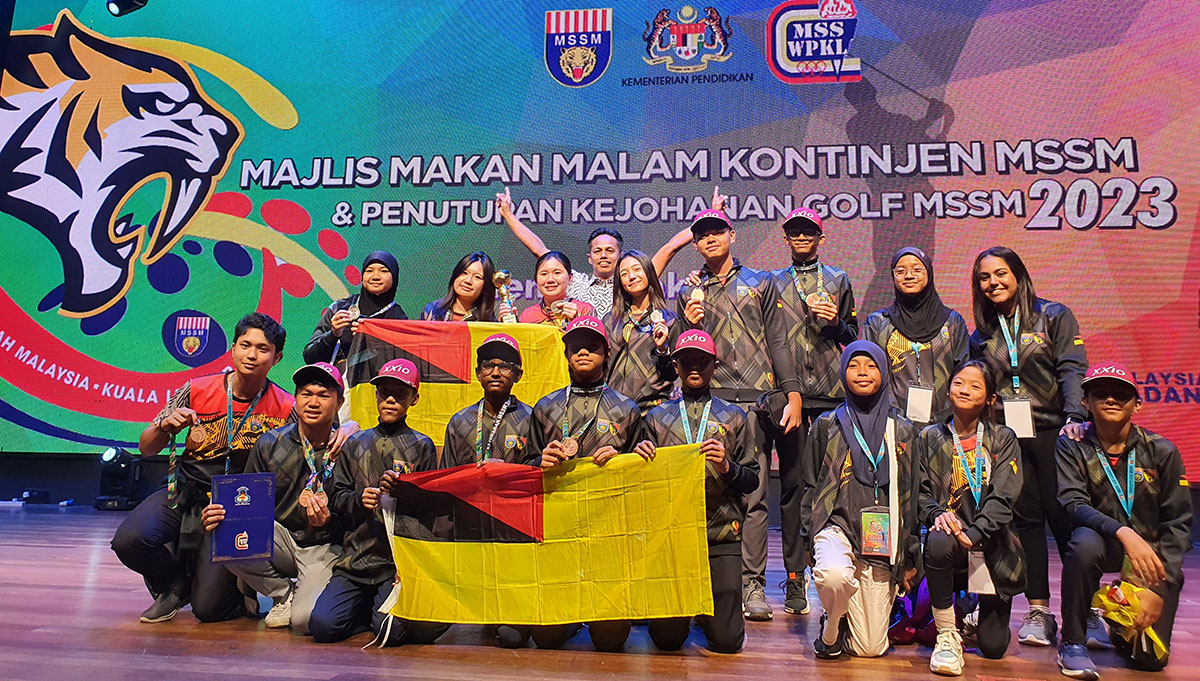
We wish Adrianna all the very best!
Meet our Maths Teachers!
Hello, we are Angela and Yunn Xynn of Crawfurd House and we would like to introduce you to some of our lovely Epsom teachers! This week we have interviewed some of our Maths teachers…
Ms Olivia Archibald, Head of Department:
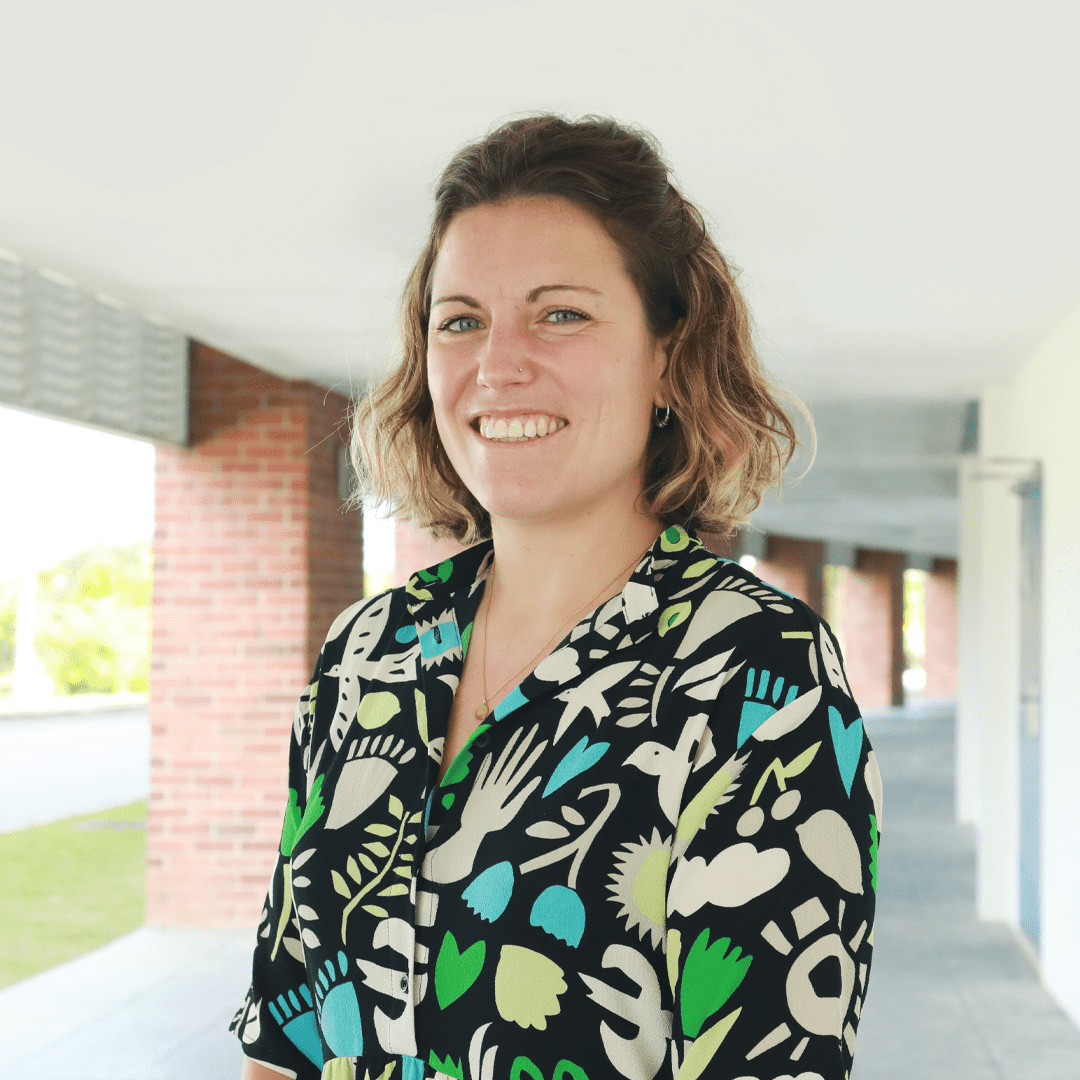
Do you like being a maths teacher at Epsom?
Yes! I love it.
What inspired you to become a maths teacher, and why do you enjoy teaching this subject?
I was inspired to become a maths teacher by the impact that a good education can have on the lives of young people. In the UK, where I am from, many social problems are rooted in a lack of good schooling. When I finished university and was choosing a career, I wanted to try and do some good in the world!
Do you have any suggestions or tips to help students memorise all the formulas?
Try to understand the reasons behind the formulas so that you have to memorise less! But, if you can't do that, then write them on a poster next to your bed so you can dream of maths formulas every night. Sweet, sweet dreams.
How do you help new students improve/gain confidence in the lessons?
By re-visiting the same topics over and over again so that students are less likely to forget what they have already learned. I like to use exit tickets to check if students have improved and then give them advice based on the exit ticket if there are any further improvements to make. Hopefully when students see the success on their exit ticket, it makes them feel more confident too.
Can you describe yourself in 3 words?
Positive, calm, complex (the last one is a tenuous further maths joke...sorry)
Ms Louise Van Der Linde:
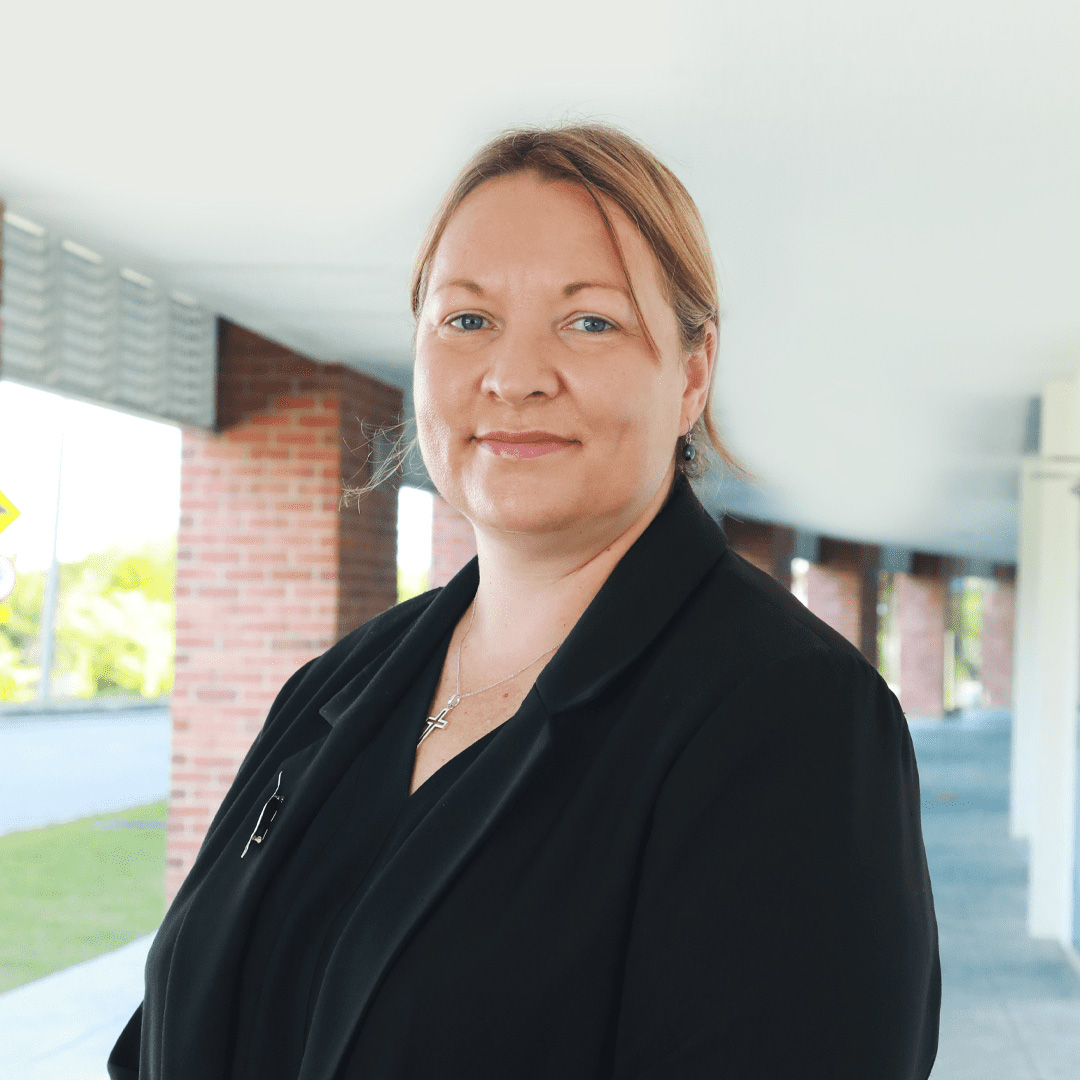
Do you like being a maths teacher at Epsom?
Yes, I love being a Maths teacher.
What inspired you to become a maths teacher, and why do you enjoy teaching this subject?
I had a fabulous teacher in school. She inspired me to become a teacher and I wanted to walk in her footsteps, hoping to inspire the next generation.
Do you have any suggestions or tips to help students memorise all the formulas?
Practise, practise, practise... Make use of flashcards - make your own on Quizlet.
How do you help new students improve/gain confidence in the lessons?
Ensuring my students feel comfortable in my class. Helping them and supporting them not just in the content but in the feeling that they can do the work to the best of their ability.
Can you describe yourself in 3 words?
Fun, supportive, kind.
Mr Jamie Bevan:
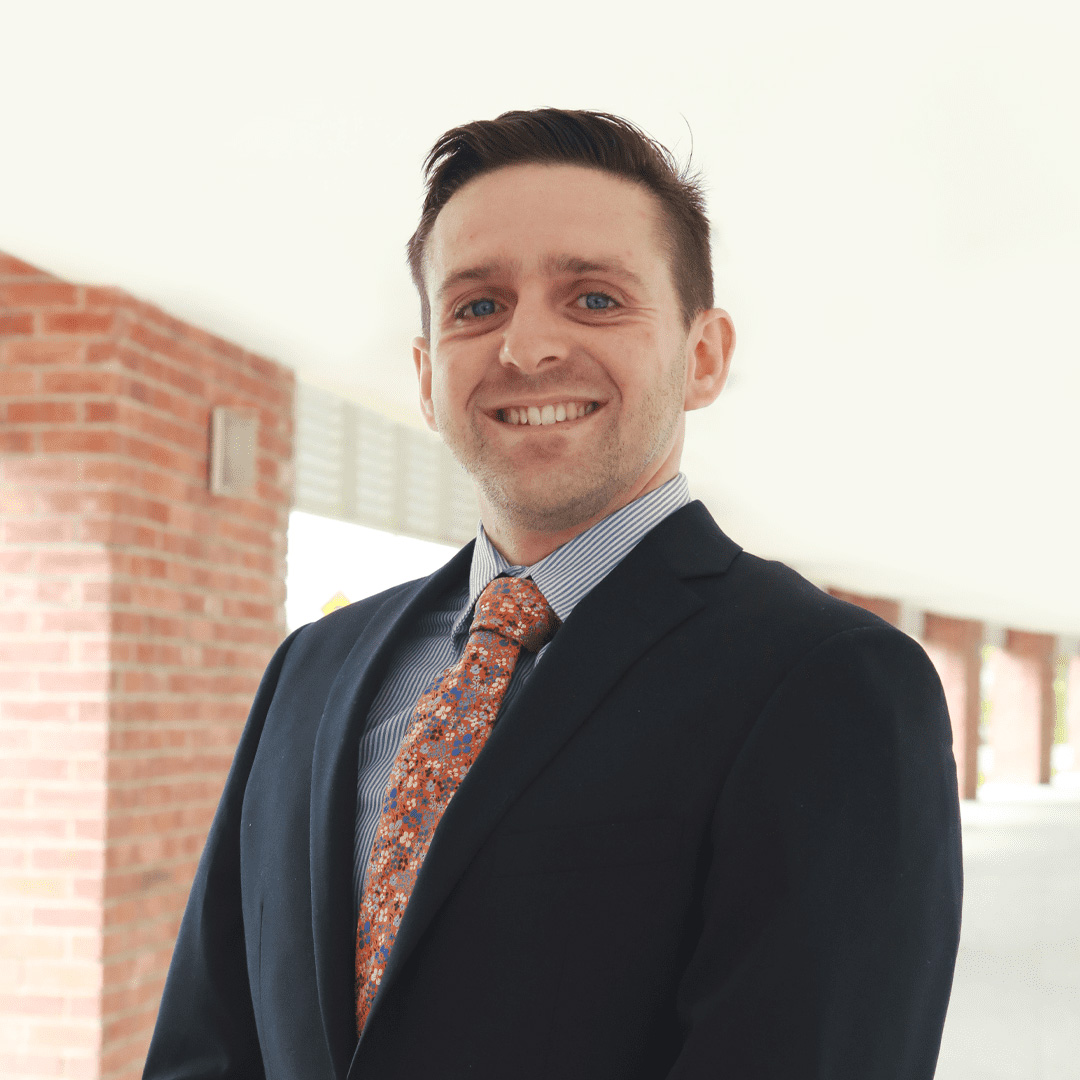
Do you like being a maths teacher at Epsom?
Yes!
What inspired you to become a maths teacher, and why do you enjoy teaching this subject?
I have always enjoyed teaching right from a work experience I had in my old primary school when I was 14. I loved the environment, helping people and learning new things so teaching seemed a natural fit for me. My grandfather died shortly after university and it really made me think about what I enjoy doing. I didn't want to spend my life doing something I didn't have a passion for, and so decided to switch from engineering to teaching. I enjoy teaching Maths (and Computer Science!) because it is a universal language. You can go to any country, and the key ideas can be understood and taught in the same way. I also like how everything (well, almost) has an exact answer, so there is no bias at all. Lastly, I love how maths can be found in everything. At the moment I am teaching python turtle in computer science, where we are using mathematical reasoning to produce some amazing drawings. It is a lot of fun!
Do you have any suggestions or tips to help students memorise all the formulas?
I think the best way to memorise formulas is simply to write them down. Make flash cards with the formula on one side and the name on the other. Then, you write down the formula when given the name on a piece of paper. Once you think you are finished, check it by turning the card over. If you are right, put the formula on your left side. If you are wrong, put it back in the pile. Once you have a full pile of cards on your left, you are done!
How do you help new students improve/gain confidence in the lessons?
I think the key to gaining confidence in Maths is practise. It is just like anything else! How to gain more muscle? Go to the gym more. How to get better at dribbling in football? Practise dribbling techniques. The idea is no different in Maths. Keep practising areas you are weak at, and one day these areas will seem easy. Also, to ensure you do not fail in this, it is important that you do not give up. If you get something wrong, it can feel really bad. So, make sure you check with a teacher, a friend, a parent or a classmate if you ever get stuck. If you follow the above advice, you will do great.
Can you describe yourself in 3 words?
Dedicated, thoughtful, friendly.
To learn more about our staff at Epsom, please click on this LINK.
Have a great weekend,
Yunn Xynn and Angela 🙂
So, Dear Reader,
Thank you for reading our Epsom Friday Flyer and we wish you all the very best for a restful weekend.
Happy Friday from us all at Epsom.
🙂
Follow us on Instagram